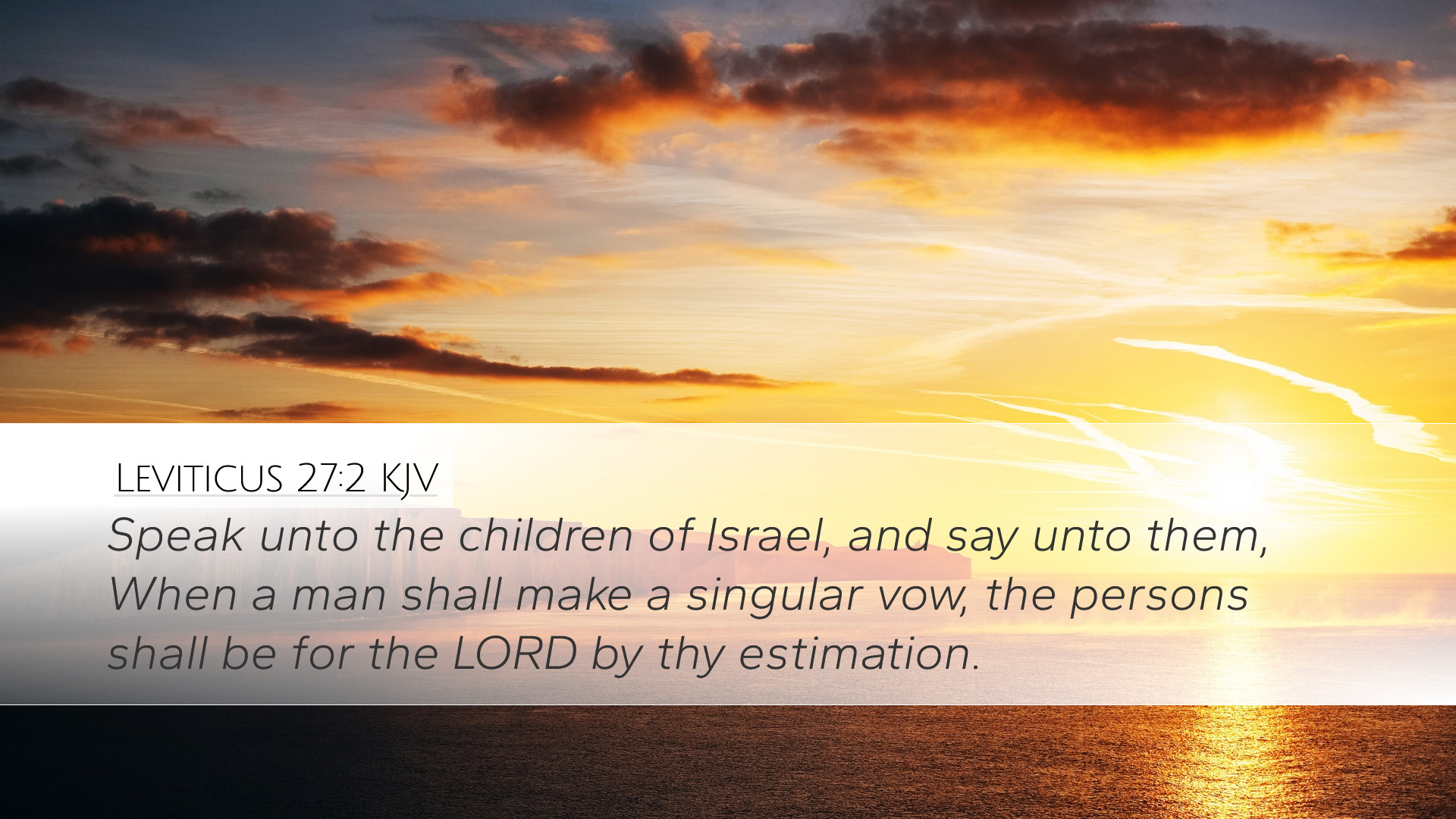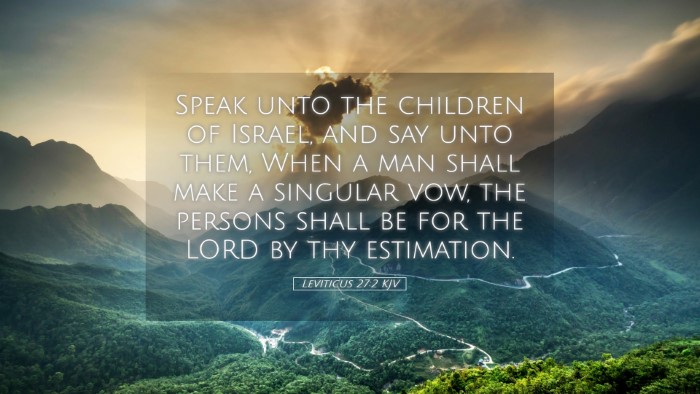Commentary on Leviticus 27:2
Verse Context: Leviticus 27:2 states, "Speak unto the children of Israel, and say unto them, When a man shall make a singular vow, the persons shall be for the LORD by thy estimation." This verse deals with the concept of vows within the community of Israel, particularly those made to God regarding the estimation of persons, animals, or property.
General Observations
This verse introduces a section on vows that were made by individuals who wanted to consecrate something or someone to the Lord. The idea of a vow signifies a deeply personal commitment and a recognition that what one possesses ultimately belongs to God. The act of promising something to God encourages believers to reflect on the weightiness of their words and commitments.
Insights from Commentaries
Matthew Henry's Commentary
Vows to God are serious commitments that must be treated with care and respect. Henry emphasizes the importance of making vows only after due consideration, asserting that it is better not to vow than to vow and not fulfill it (Ecclesiastes 5:5). He highlights how these vows often reflect one’s faith and devotion, indicating that God takes our promises seriously.
Henry also notes that these regulations were given to guide the people in their understanding of sacred commitments. The phrase "by thy estimation" suggests an element of accountability, as estimates must be fair and made in accordance with the value ascribed by God’s standards.
Albert Barnes' Notes on the Bible
Barnes focuses on the cultural significance of vows within the community of Israel. He notes that a “singular vow” is a unique promise that indicates a personal relationship to God, distinguishing it from general offerings. Importantly, Barnes points out that it creates a status that requires the community’s involvement in terms of estimation and valuation.
He expounds on the notion of estimation, explaining that the priests had a critical role in determining the value of what was vowed. This was not just a personal affair but also a communal responsibility to uphold the sanctity of the vow made to God.
Adam Clarke's Commentary
Clarke delves into the theological implications of the vow. He posits that every vow is ultimately seen and acknowledged by God, affirming divine ownership over all things. This commentary emphasizes the traditional Jewish understanding that a vow should be fulfilled with utmost promptness as a way to express one’s faithfulness to God.
Clarke also highlights that these regulations served as a reminder to the Israelites of their absolute dependence on God. In valuing something as sacred that belongs to the Lord, they reaffirm their identity as His chosen people.
Theological Implications
This verse encapsulates a profound theological truth: everything belongs to God. The act of making a vow underscores the believer's recognition of God's sovereignty and their own limitations. Vows prompt believers to re-evaluate their possessions and commitments in light of their relationship with God.
Considerations for Vows:
- Intentionality: Vows should stem from a genuine desire to please God, not mere impulse.
- Accountability: Community guidance, such as that by priests, reflects the importance of collective responsibility in spiritual matters.
- Fulfillment: Following through with vows is critical; it reflects one’s integrity and faithfulness.
Application for Today’s Believer
Today, pastors and believers can find relevance in Leviticus 27:2 by applying its principles to their lives. The understanding of vows and pledges can enrich one's spiritual life and encourage deeper commitment to God.
When encountering this text, it is vital to reflect on:
- The nature of one's commitments to God. Are they made thoughtfully and reverently?
- The role of the community in holding one another accountable to such spiritual commitments.
- The understanding that spiritual vows, whether verbal or written, carry significant weight in one’s relationship with God.
Conclusion
In summary, Leviticus 27:2 invites believers to contemplate the seriousness of vows made to the Lord. Through insights from various commentators, we see how this verse speaks not only to the historical context of ancient Israel but also to the ongoing relationship between God and humanity. By valuing our commitments and understanding their implications, we can honor God in a way that is reflective of His greatness and our devotion to Him.


